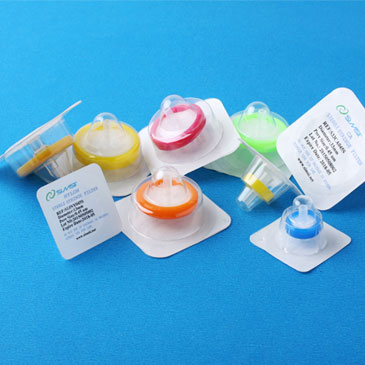Things You Shouldn’t Overlook When Buying Syringe Filters Online
In the biological and laboratory procedures, an accurate preparation of samples is imperative. This process should be completed with precision for eliminating microorganisms and sample particles. The biopharmaceutical industries rely on the syringe filter membrane for assuring the accuracy of their experimental procedures. These filters are made of plastic and they have a typical wheel shape. The membranes of the filters allow purification or elimination of contaminants. When looking to buy syringe filters online, you need to maintain the same precision and find the best product suited to your applications. Don’t overlook the factors given below:

Filter Membrane Selection:
To select the right type of membrane, you should check the chemical compatibility of available membrane types with the samples to be filtered. Here, it is important to check the factor of protein binding capacity offered by a membrane. The choices include PTFE, MCE, PES, PVDF, Nylon, and Polypropylene membranes. Each of these has different properties that make them suitable for varied applications. You should consider the properties and nature of the sample to choose the right type of membrane.
As an example, you can choose PVDF filters for purifying the protein-based samples while MCE is a preferable choice for biological solvents. The PES membranes are widely used for tissue culture filtration methods and nylon filter facilitates purification of aqueous substances. In some laboratory analysis, you may need hydrophobic membranes that can work effectively with non-polar solvents. In this regard, PTFE is a viable choice due to the chemical resistant polymer that helps in removing the contaminants from corrosive solvents as well.
Filter Diameter Selection:
To expedite the process of filtration, you can buy syringe filters online designed with inert housing and female Leur inlet. They are available in different diameters to suit the volume of samples to be filtered. You can buy 30mm filters for high speed and large-scale filtration, 25mm diameter for better throughput, 13mm for versatility in the operations, 4mm diameter size for filtration of smaller samples. These filters are designed to ensure compatibility with organic and aqueous solvents used in most of the biological and laboratory analyses.
Pore Size Selection:
This selection is critical to maintaining the precision of the filtration process. You should find the right pore size depending on the size of a sample to be used in the process. It is measured in terms of microns. For example, you need a membrane filter having a pore size of 0.3 microns to filter a solvent having the same diameter of 0.3 microns. For fine porosity, choose the filters that can withstand high pressure used for allowing the passage of samples in large volumes.
You should also consider the factors like pricing, quality, and sterility of the filter syringes for making the right selection.

Filter Membrane Selection:
To select the right type of membrane, you should check the chemical compatibility of available membrane types with the samples to be filtered. Here, it is important to check the factor of protein binding capacity offered by a membrane. The choices include PTFE, MCE, PES, PVDF, Nylon, and Polypropylene membranes. Each of these has different properties that make them suitable for varied applications. You should consider the properties and nature of the sample to choose the right type of membrane.
As an example, you can choose PVDF filters for purifying the protein-based samples while MCE is a preferable choice for biological solvents. The PES membranes are widely used for tissue culture filtration methods and nylon filter facilitates purification of aqueous substances. In some laboratory analysis, you may need hydrophobic membranes that can work effectively with non-polar solvents. In this regard, PTFE is a viable choice due to the chemical resistant polymer that helps in removing the contaminants from corrosive solvents as well.
Filter Diameter Selection:
To expedite the process of filtration, you can buy syringe filters online designed with inert housing and female Leur inlet. They are available in different diameters to suit the volume of samples to be filtered. You can buy 30mm filters for high speed and large-scale filtration, 25mm diameter for better throughput, 13mm for versatility in the operations, 4mm diameter size for filtration of smaller samples. These filters are designed to ensure compatibility with organic and aqueous solvents used in most of the biological and laboratory analyses.
Pore Size Selection:
This selection is critical to maintaining the precision of the filtration process. You should find the right pore size depending on the size of a sample to be used in the process. It is measured in terms of microns. For example, you need a membrane filter having a pore size of 0.3 microns to filter a solvent having the same diameter of 0.3 microns. For fine porosity, choose the filters that can withstand high pressure used for allowing the passage of samples in large volumes.
You should also consider the factors like pricing, quality, and sterility of the filter syringes for making the right selection.
Advertise on APSense
This advertising space is available.
Post Your Ad Here
Post Your Ad Here
Comments